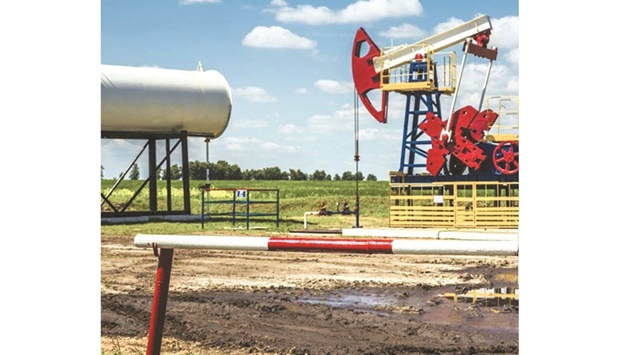Oil slipped on Friday, posting a weekly loss of nearly 5%, on the prospect of weaker global growth, higher interest rates, and Covid-19 lockdowns in China hurting demand even as the European Union considers a ban on Russian oil that would tighten supply. Brent crude settled down $1.68, or 1.6%, at $106.65 a barrel. US West Texas Intermediate (WTI) crude declined $1.72, or 1.7%, to $102.07.
The International Monetary Fund, which this week cut its global economic growth forecast for 2022, could further downgrade it if Western countries expand their sanctions against Russia over its war against Ukraine, and energy prices rise further, according to the agency officials.
The European Commission was working to speed up the availability of alternative energy supplies, while a senior White House adviser said he was confident Europe is determined to close off or further restrict remaining Russian oil and gas exports. On the supply side, the Russia-Kazakh Caspian Pipeline Consortium (CPC) is expected to resume full exports from April 22 after almost 30 days of disruptions, sources said. However, supply could be squeezed further if the EU imposes an embargo on Russian oil.
Gas
Asian spot liquefied natural gas prices were down last week on softer Spring demand, but further downside is limited as Asian buyers are expected to start to return to the market. The average LNG price was estimated at $25.40 per metric million British thermal units, down $7.60, or around 23%, from the previous week, industry sources said. China's overall LNG imports last month fell 17% year-on-year to 4.63mn tonnes, the lowest in two years. China's strict Covid-19 lockdown has lowered demand, but Asian markets could experience a hot summer with above than average temperatures, translating into high power demand and accordingly higher demand for LNG.
In Europe, LNG deliveries have remained firm in April and the continent is expected to surpass the record level observed in January. Russian gas pipeline supplies to Europe have so far remained stable, but market players are concerned over possible disruptions of Russian gas as a deadline for rouble payments nears. In the United States, natural gas futures fell on Friday on route to their first weekly dip in six, with the pullback from 13-year peaks scaled earlier in the week hastened by a larger-than-expected weekly storage build.
This article was supplied by the Abdullah bin Hamad Al-Attiyah International Foundation for Energy and Sustainable Development.

